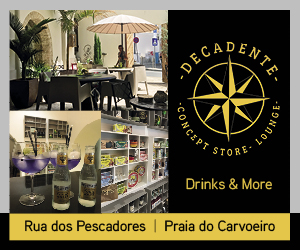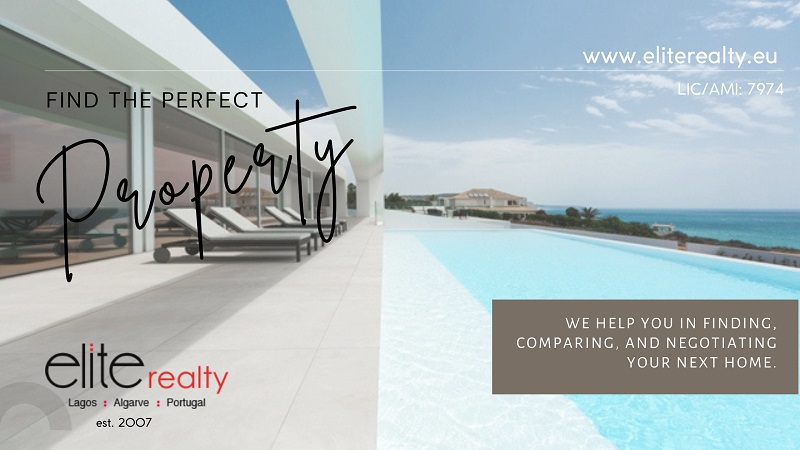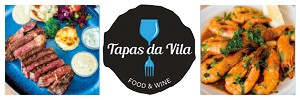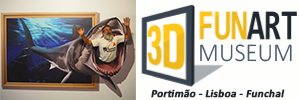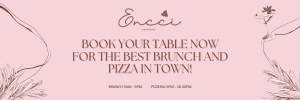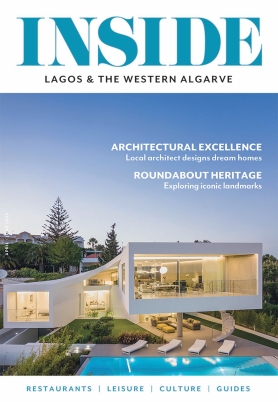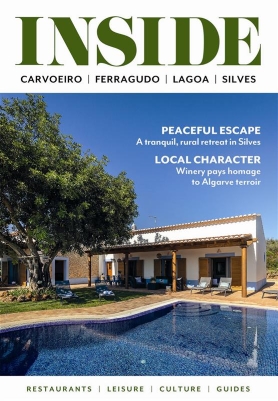A fusion of worlds
– December 1, 2023 | Text Beatriz Maio | Photos Renee Joppe
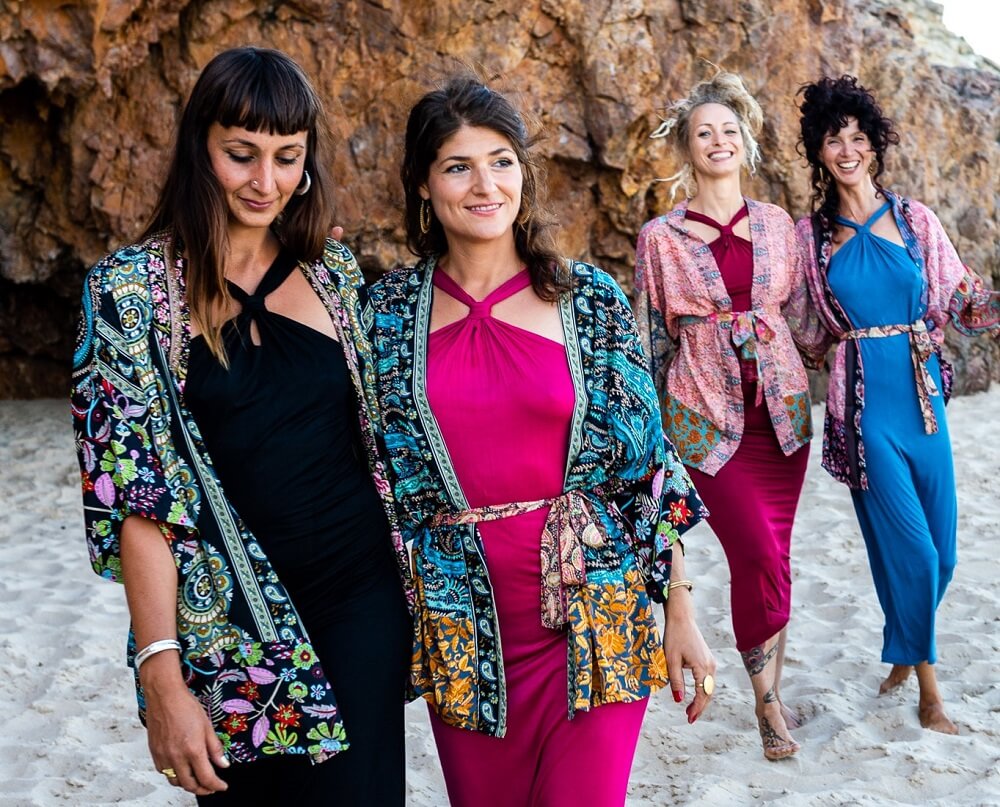
Sarah Duemmel was born in East Germany, but it is in Praia da Luz that she spends her days and develops her work. She had already visited Portugal several times and lived in Lisbon before, but, in 2020, she decided to explore the South, and this is here where she intends to stay.
She did not have an easy childhood, growing up during the Cold War and in an environment where there was no freedom and life had many restrictions. She remembers watching her family struggling to live with dignity, which led her to value her autonomy and independence.
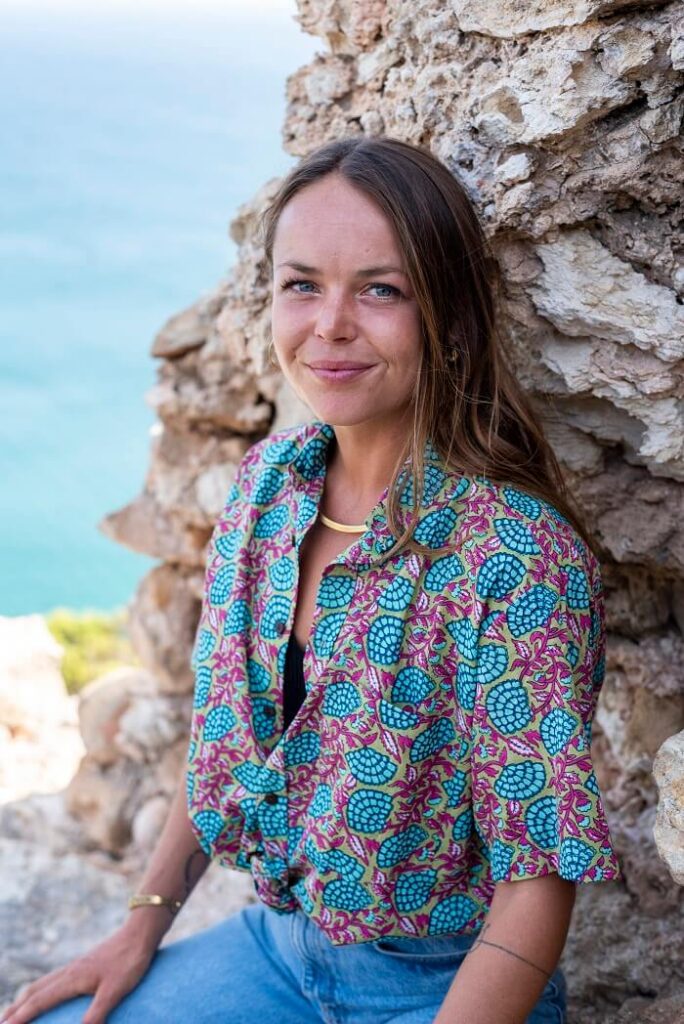
Sarah used to paint as a child – an influence that came from her father, a Rhetoric teacher who liked painting in his spare time – and when she grew up, her taste for creating evolved too; she was her own fashion designer for her prom.
As an adult, she decided to be a nurse like her mother and worked for a few years in Germany, but her passion for the arts and her desire to explore her creative side made her want to follow a different career path.
Later, she became interested in multiculturalism and studied Communications, Culture, and History, but she did not stop there – she also took a Yoga teaching course.
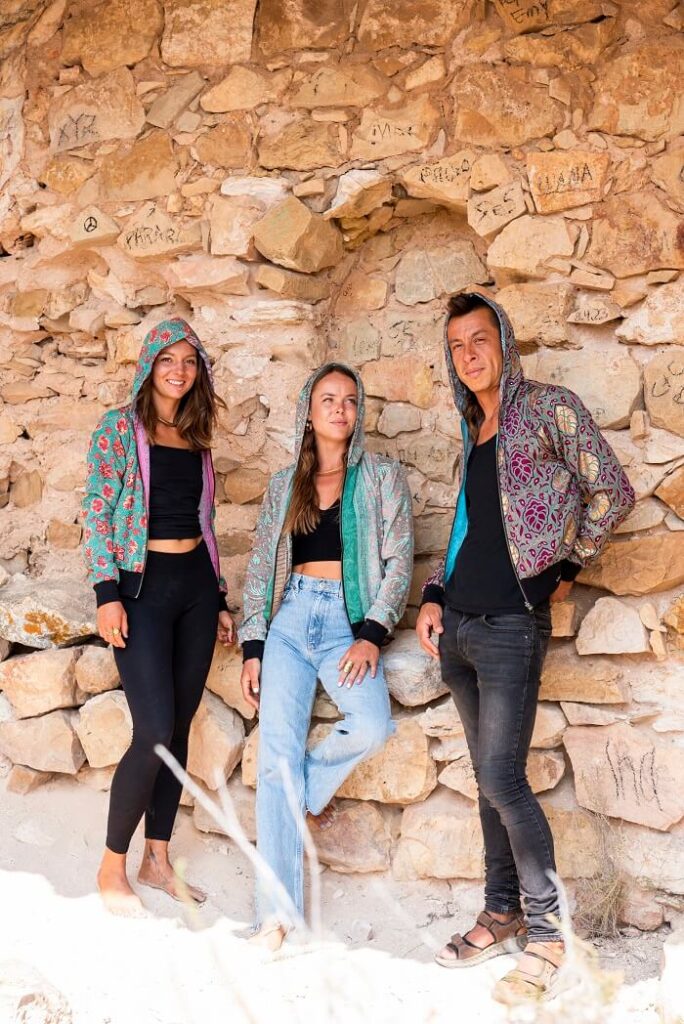
Her love for travelling led her to take the risk of discovering new cultures, people, and lifestyles. She visited several countries in Europe and Asia, worked as a nurse in Senegal, Africa, and even lived in Israel for five years. “These experiences teach us a lot and show us what we really need in life, they change our outlook,” Sarah reflected, revealing that when she arrived in Portugal, she gave away a lot of her belongings because she realised she “didn’t really need it”.
When she visited India, where she made several connections, she started to wonder how she could create better conditions for the locals and generate profit. Therefore, in 2018, Sarah decided to create Mercusion, an idea that had come up previously but needed investment to get off the ground.
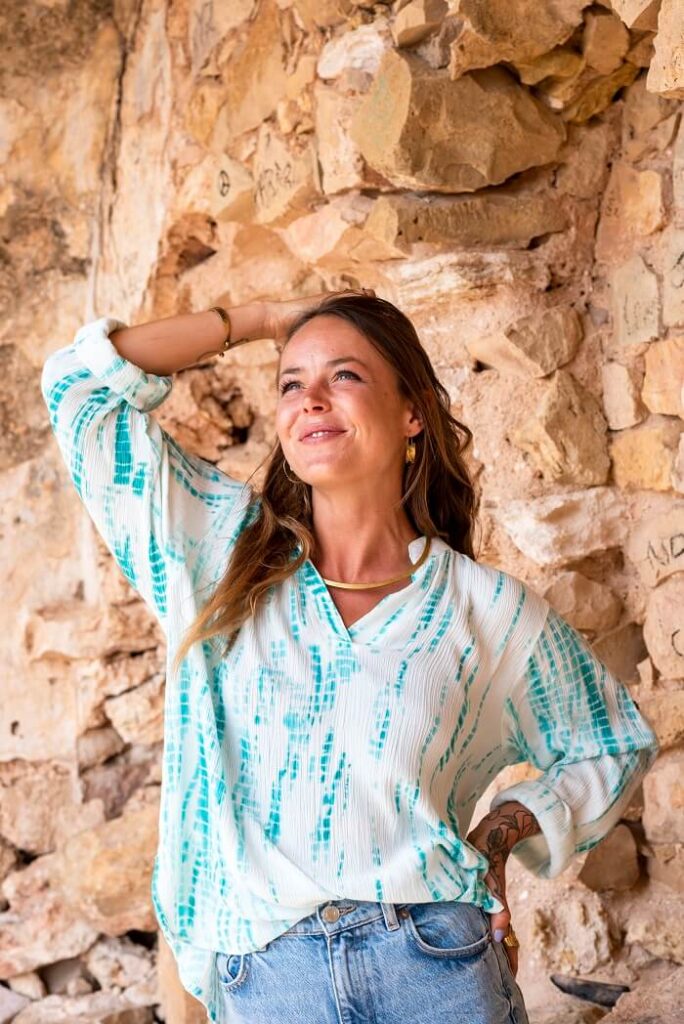
“I started with jewellery because it’s easier to store, transport, and create at a more affordable price than clothes,” she said, emphasising that her friends in India have always been helpful. “They gave me the possibility to start Mercusion because my initial investment was not enough, so they believed in my ideas, trusted my talent, and worked in the beginning knowing that they would only get paid in a few months’ time.”
Although she felt a lot of pressure at first, her gratitude was even greater. However, it was not just Sarah who was grateful, but also the people who, with her help, saw their living conditions improve and who still work with her today. These people were the first to support her business and so, a remarkable bond was formed.
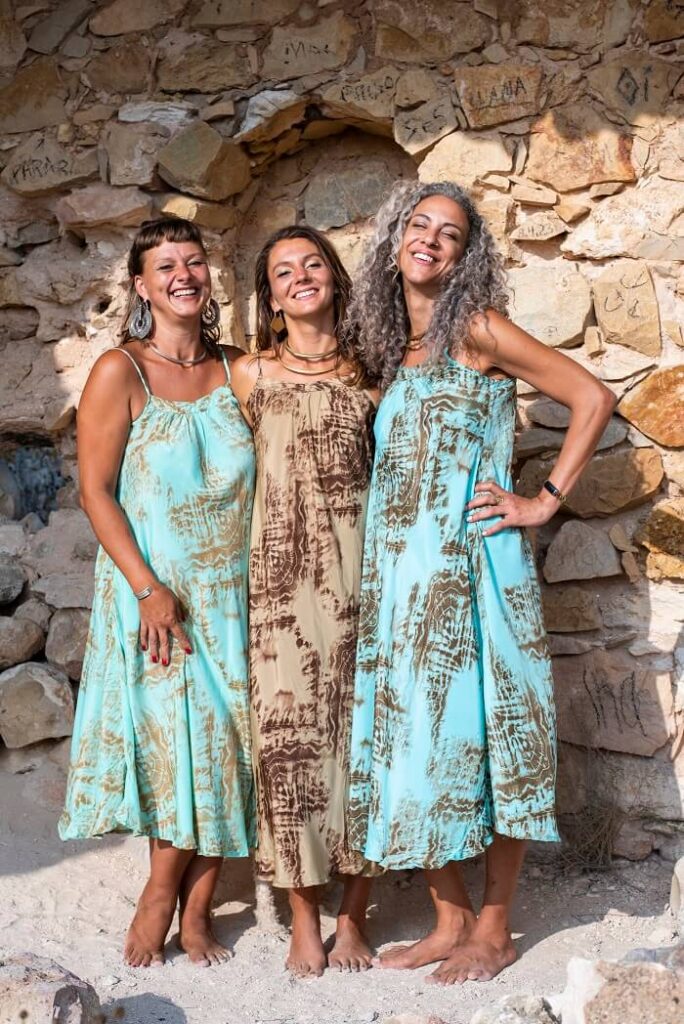
It only took a year for Sarah to sell most of the pieces from her first production, made of brass, around street markets in Germany. The success of the sales led her to set a new goal: “From then on, every year I put a certain amount on the side for something new. The following year, I focused on clothes and came out with the first shirts and skirts,” she recalled.
Mercusion grew and Sarah’s ideas went from paper to reality, eventually reaching several countries through her clients. Reducing environmental impact by minimising waste and pollution is at the top of the designer’s priorities, one of the reasons why she uses “organic, eco-conscious and recycled innovative materials” only from India and Thailand.
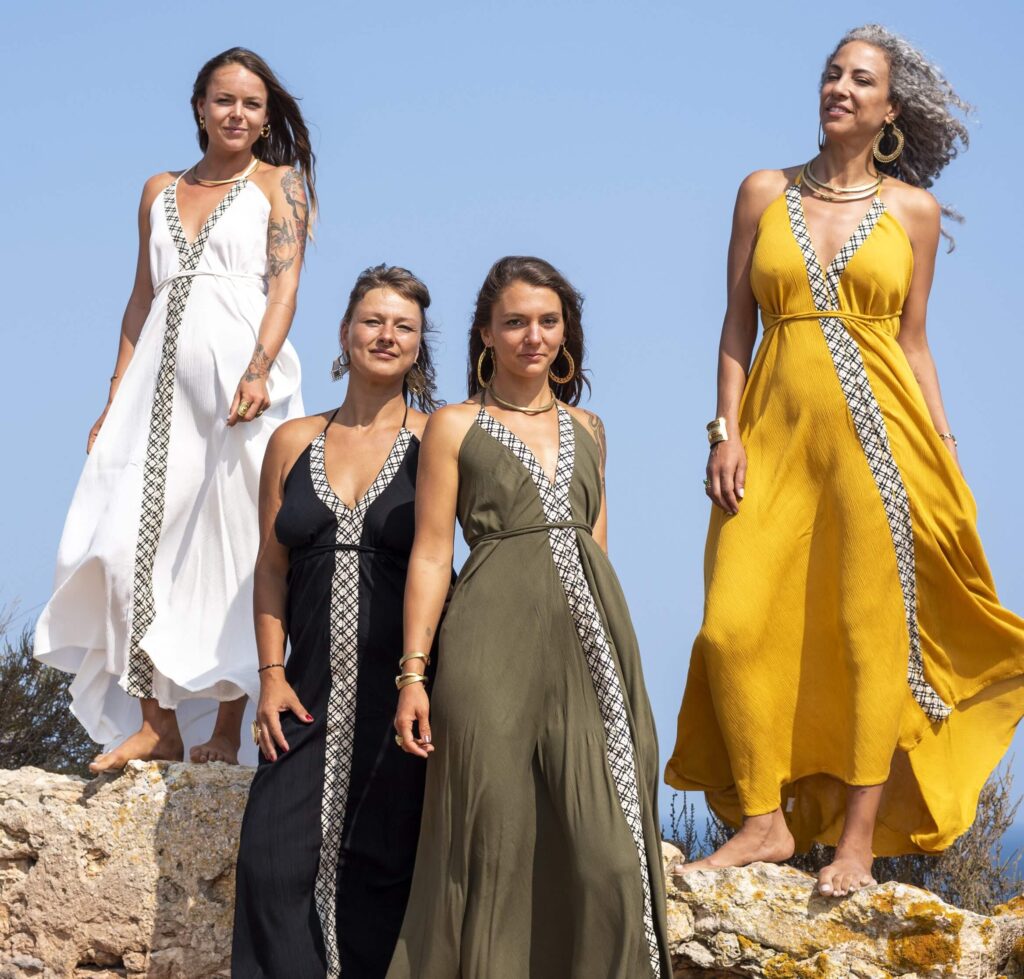
Much more than clothes and jewellery, Mercusion brings a different concept to the fashion industry, where the background is taken into consideration, from the materials and the amount of water wasted to the working conditions and a positive environment provided to her workers. “It’s not just about wanting to make money, but about following a work ethic and having respect for everyone and the planet.”
The name Mercusion, born from the combination of Mercury and Fusion, is inspired by the Roman god Mercury, who is not only the god of travellers but also symbolises the connection between three different worlds: the gods, humans, and death.
“At Mercusion, I try to combine different worlds and fuse them together to show people that is possible to work with each other, to be peaceful, and that we can all gain from it,” Sarah explained.
Her inspirations come from “everywhere”, and this is reflected on her logo. It was in a metro station in India that the first draft came to her mind, precisely when she looked at a shape on the ground that caught her eye. She knew she wanted a futuristic black-and-white style, but she did not know the shape until she gradually began to identify different elements she wanted to include.
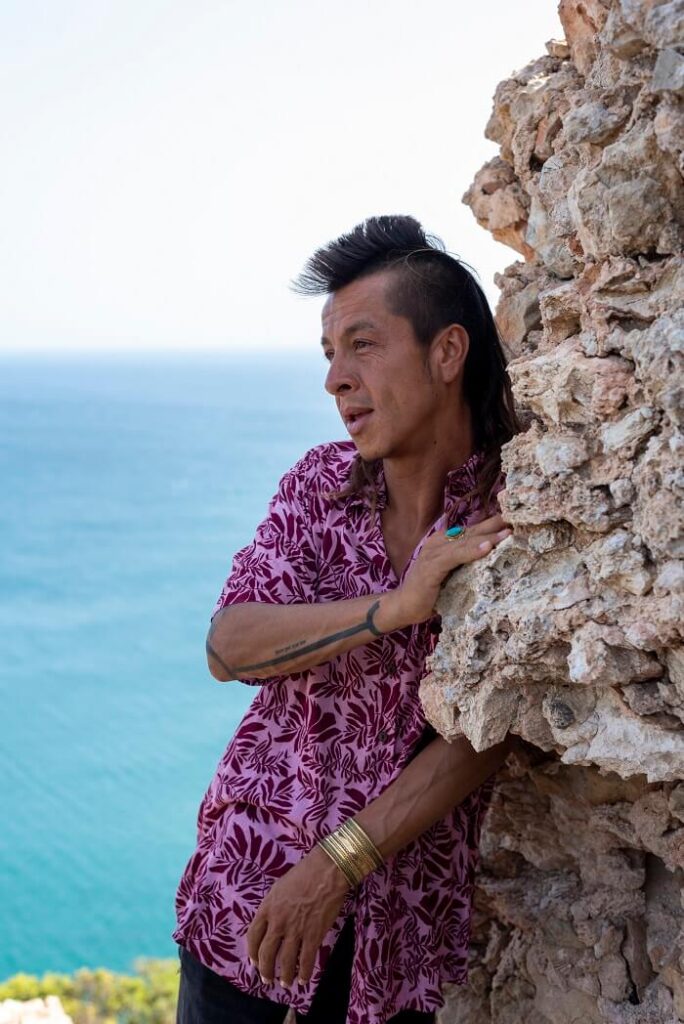
The logo is also related to the god Mercury’s staff that has two wings and a pair of snakes entwined seven times, which represents rising energy and the seven chakras, according to Sarah. In the Mercusion symbol, all the lines connected “are the futuristic snakes”, in the designer’s vision, and at the top, there is the moon and the sun “symbolising the feminine and masculine energy together”.
Even though, at the moment, Mercusion production is just in India and Thailand, Sarah’s main goal is to find a country to develop a new collection with its ethnic styles every year. Another of Sarah’s dreams, aside from being able to have a part of herself in various countries, is to make a difference in India by setting up a centre where children who are orphans or from needy families can study and grow up safely.
Mercusion can be found at Carioca shop (Praia de Luz), Safari Restaurante (Portimão), Eco Store (Salema), The Hive store (Aljezur).

